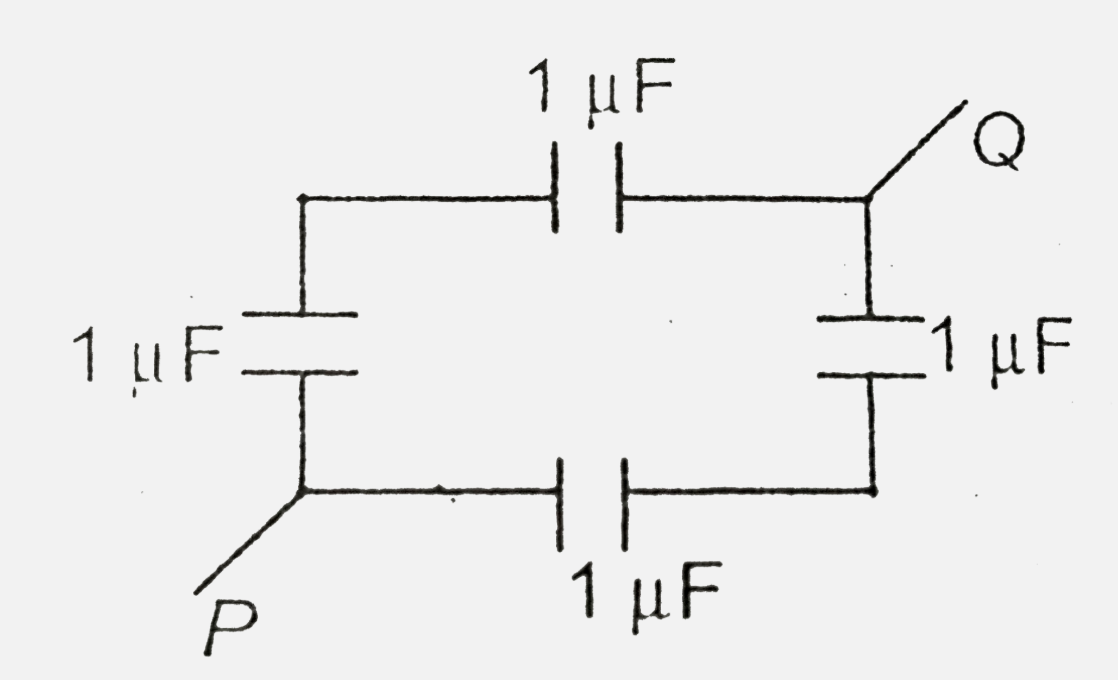In the circuit diagram shown in the adjoining figure, the resultant capacitance between P and Q is
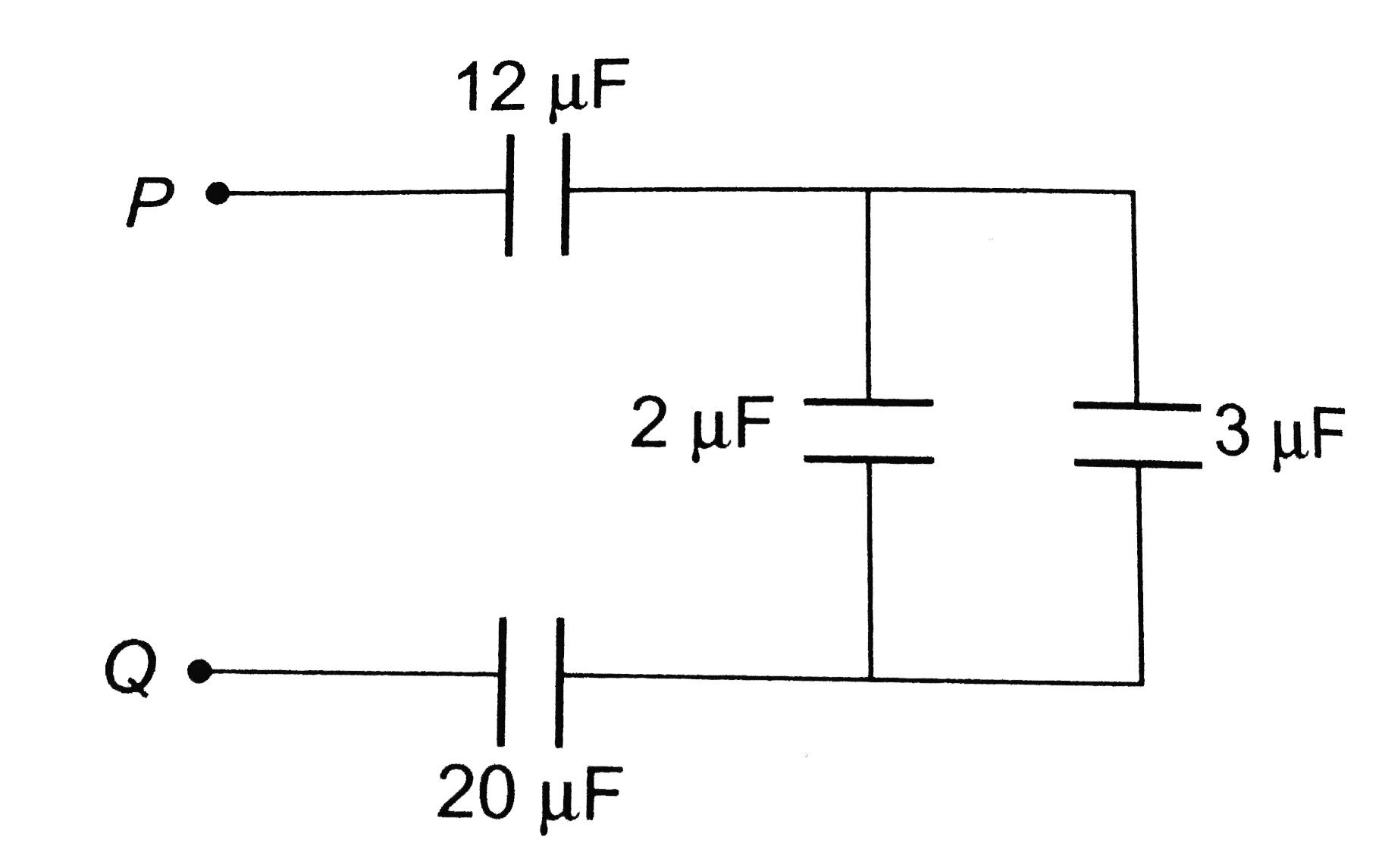
47μF
3μF
60μF
10μF
The correct Answer is:B
Step by step video, text & image solution for In the circuit diagram shown in the adjoining figure, the resultant capacitance between P and Q is by Physics experts to help you in doubts & scoring excellent marks in Class 12 exams.
Topper's Solved these Questions
- BOOK - DC PANDEYCHAPTER - ELECTROSTATIC POTENTIAL AND CAPACITORSEXERCISE - (B) Chapter exercises20videos
ELECTROSTATIC POTENTIAL AND CAPACITORS
- BOOK - DC PANDEYCHAPTER - ELECTROSTATIC POTENTIAL AND CAPACITORSEXERCISE - (C) Chapter exercises50videos
ELECTROSTATIC POTENTIAL AND CAPACITORS
- BOOK - DC PANDEYCHAPTER - ELECTROSTATIC POTENTIAL AND CAPACITORSEXERCISE - Check point 2.520videos
ELECTROSTATIC POTENTIAL AND CAPACITORS
- BOOK - DC PANDEYCHAPTER - ELECTROMAGNETIC WAVESEXERCISE - Sec C22videos
ELECTROMAGNETIC WAVES
- BOOK - DC PANDEYCHAPTER - ELECTROSTATICSEXERCISE - Medical entrances gallery37videos
ELECTROSTATICS
Similar Questions
Knowledge Check
- Question 1 - Select One
The equivalent capacitance between P and Q is.
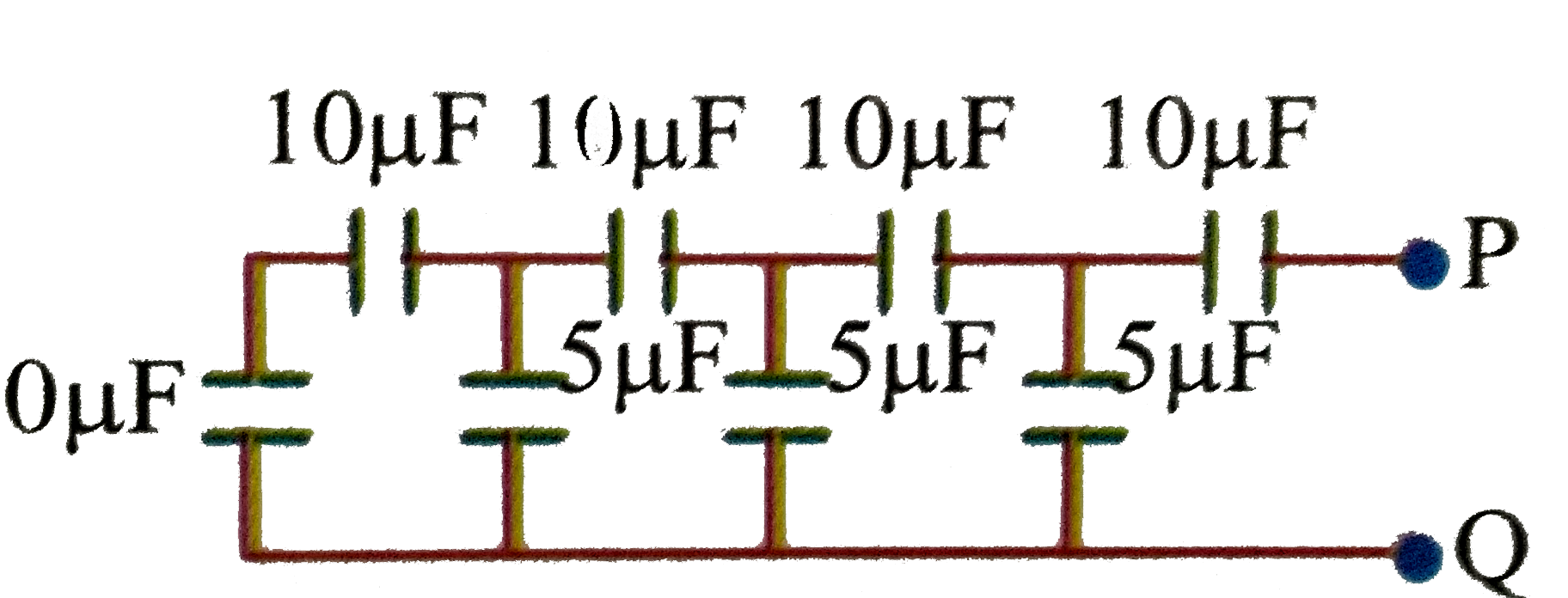 .A10μFB20μFC5μFD15μF
.A10μFB20μFC5μFD15μF - Question 2 - Select One
In the connection shown in the adjoining figure, the equivalent capacity between A and B will be
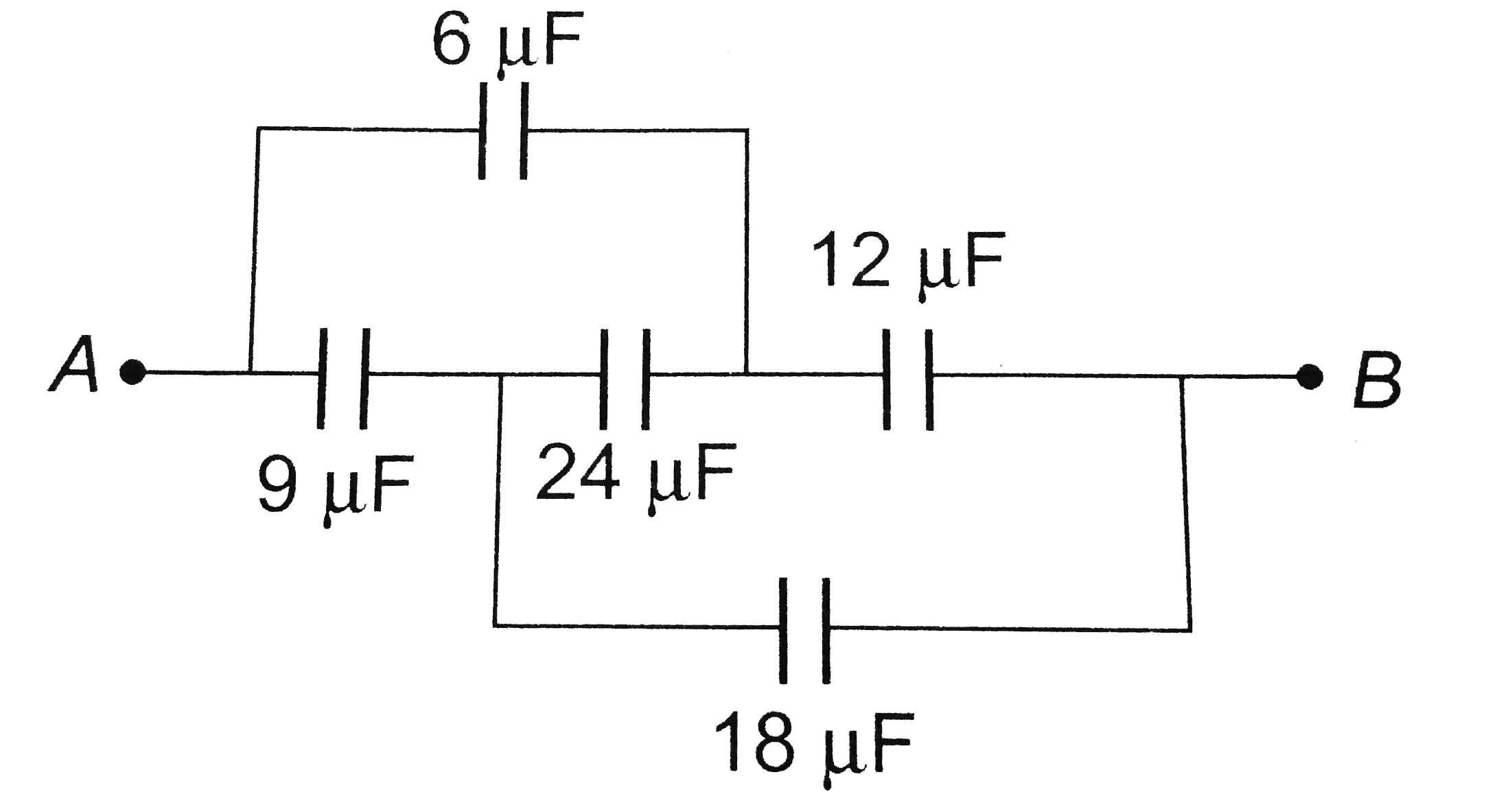 A10.8μFB69μFC15μFD10μF
A10.8μFB69μFC15μFD10μF - Question 3 - Select One
Five equal capacitors, each with capacitance (C) are connected as shown in the adjoining fig. Then the equivalent capacitance between A and B is -
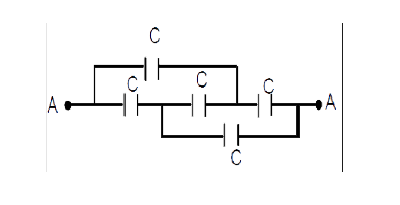 ACB5CCC/5D3C
ACB5CCC/5D3C
In the network of resistors shown in the adjoining figure, the equivalent resistance between A and B is
 View Solution
View SolutionFor the circuit, the equivalent capacitance between P and Q is
 View Solution
View SolutionFour capacitors of each of capacity 3μF are connected as shown in the adjoining figure. The ratio of equivalent capacitance between A and B and between A and C will be
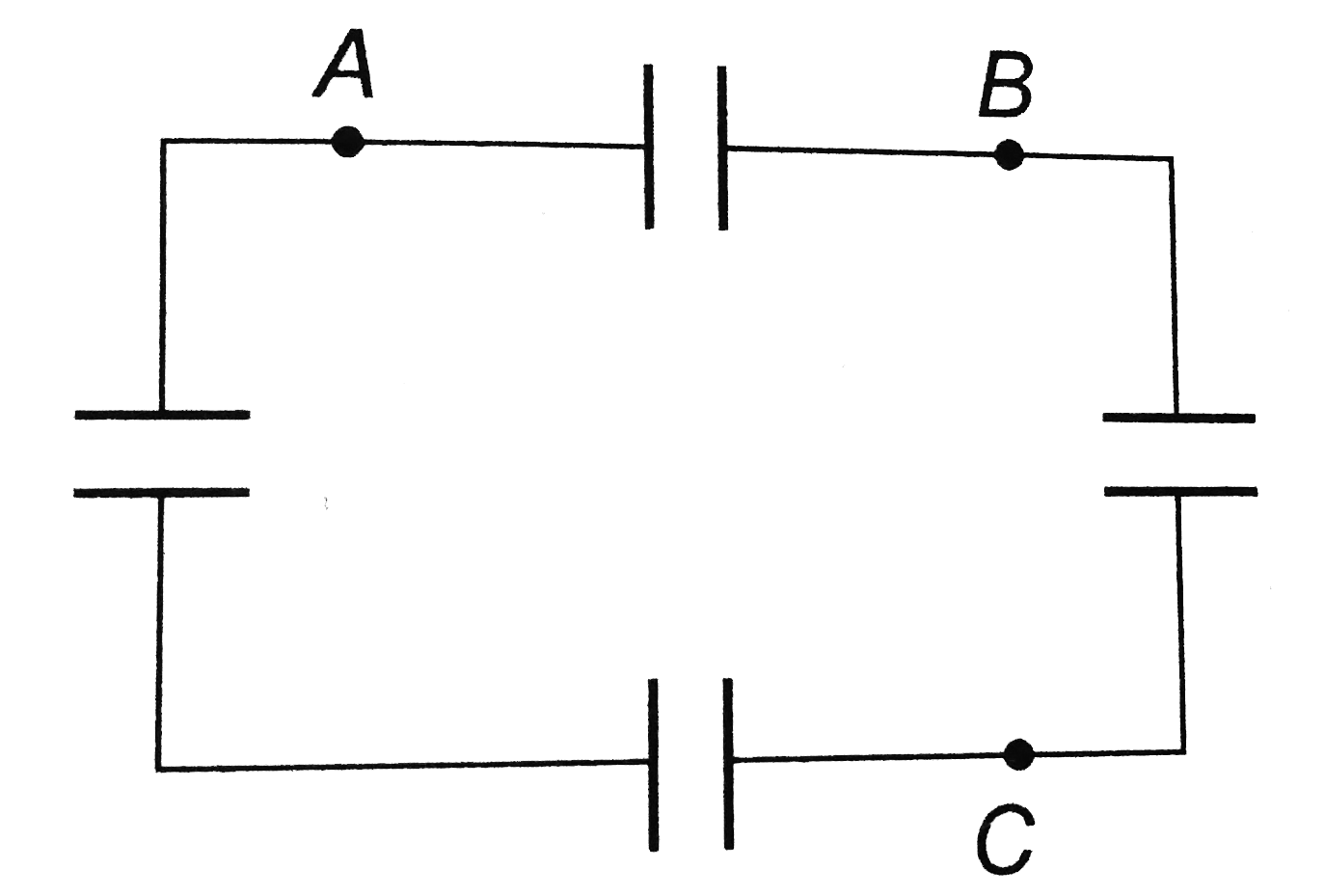 View Solution
View SolutionIn the circuit as shown in the figure the effective capacitance between A and B is
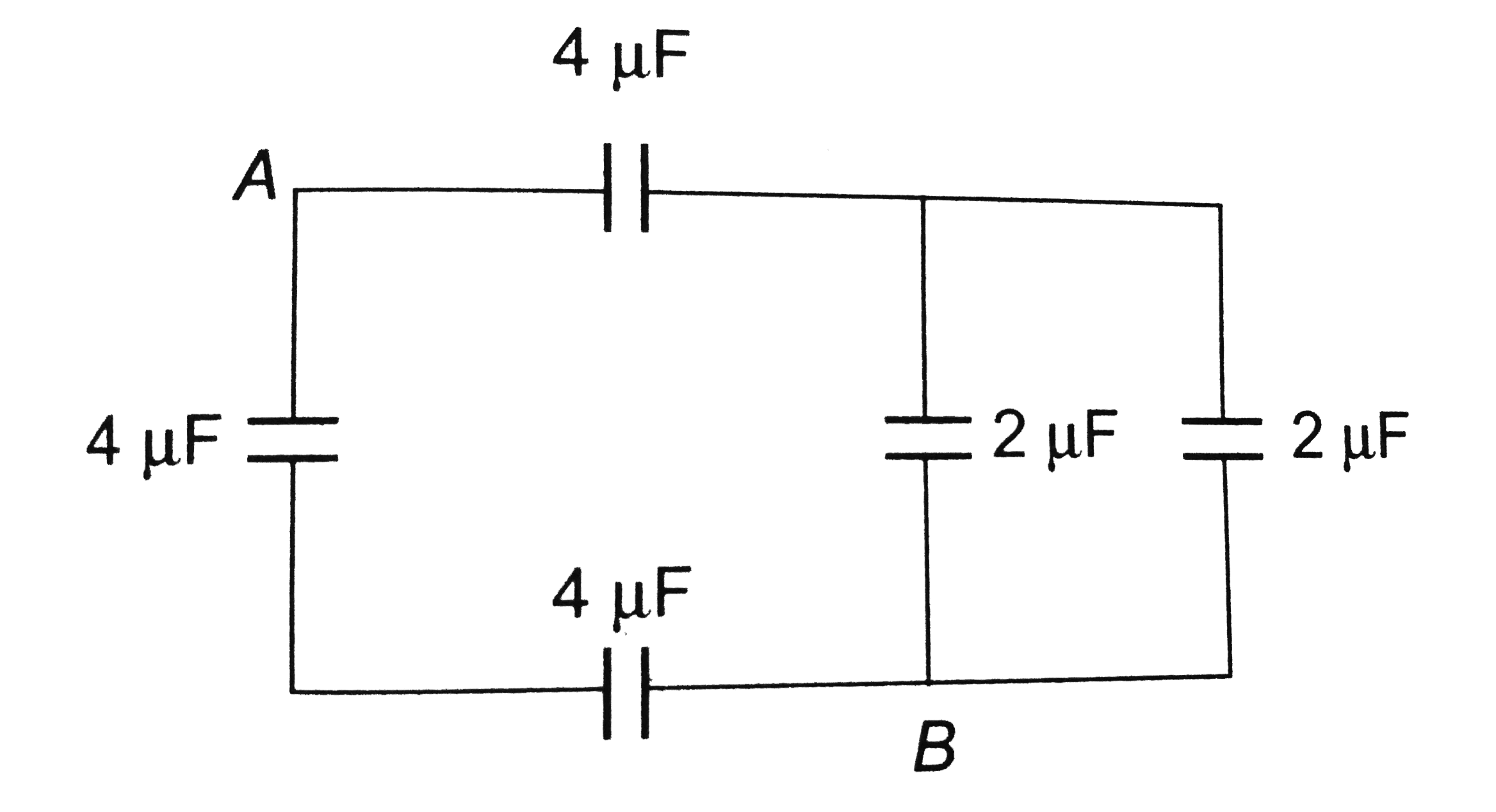 View Solution
View SolutionIn the circuit as shown in the figure the effective capacitance between A and B is
 View Solution
View Solution


